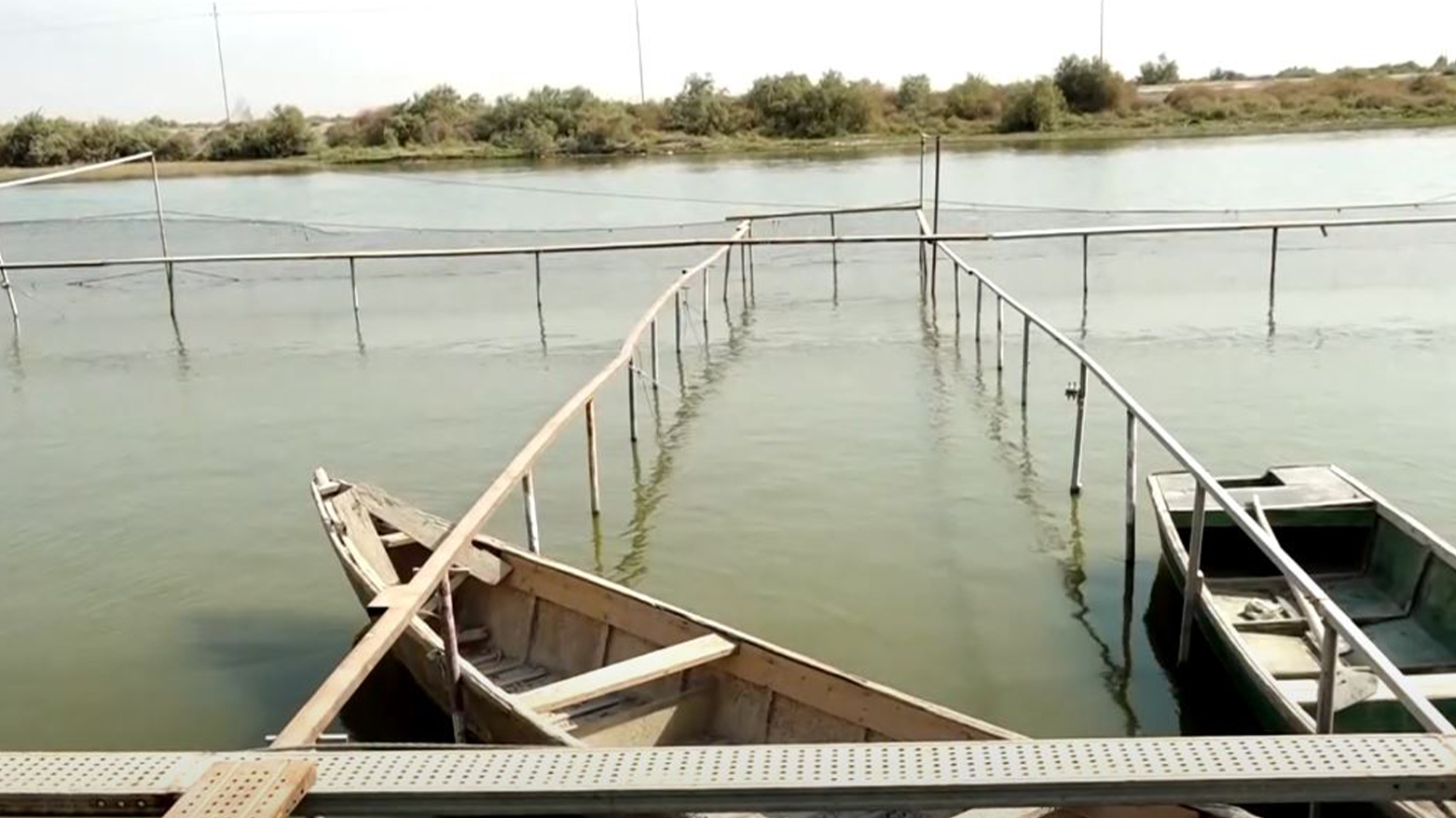Basra Fish Farms Devastated as Salinity Crisis Kills Thousands
Basra fish farms face devastation as rising salinity kills thousands of fish, farmers report. Experts warn water pollution and salt levels have exceeded natural limits, destroying livelihoods. They urge government support for sustainable aquaculture.

ERBIL (Kurdistan24) – What was once a lake full of life has now become a graveyard for fish. Rising salinity in Basra’s waters has triggered a devastating environmental disaster, leaving thousands of fish dead and entire communities in shock. Experts warn that salinity levels have surpassed natural limits, turning water—once a source of life—into a cause of mass death.
Shakir Shinawi, a fish farm owner, told Kurdistan24 that this disaster is not new. A similar catastrophe struck in 2018, followed by rising water discharge in 2019 that temporarily restored supplies for agriculture. “But now,” he said, “this disaster is among the worst we have seen. None of the fish in our ponds survived. It is not only salinity; the water has also become severely polluted.”
Appealing directly to the prime minister, the governor, and the provincial council, Shinawi stressed: “We live on these lakes. Our livelihood does not come from salaries but from fish, ponds, and agriculture.”
For fish farmers who looked forward to a season of abundance, the crisis has turned into tragedy. Within just days, millions of Iraqi dinars were wiped out as entire fish stocks perished, erasing years of hard work and leaving families with nothing.
Ala Badran, an expert in aquaculture and water farming, explained that the disaster stems from increased salinity in the Shatt al-Arab waterway, particularly affecting southern Basra’s Sibah district. “Most of the farms have collapsed, and the losses are immense,” he noted.
Badran also criticized the Ministry of Agriculture for failing to respond. He pointed out that Basra continues to import fish from other provinces, while local farms remain unsupported. “The ponds were never equipped with advanced systems like biofloc technology, which could recycle organic matter and prevent the need for constant water replacement,” he said. “Such systems are costly, but easier to use and could provide a sustainable alternative if farmers were granted loans or financial assistance.”
The collapse of fish farming is not only an environmental crisis but also a social one. Entire families, dependent on ponds and fisheries, have been left destitute. Drying rivers, rising salinity, and toxic water have destroyed livelihoods in a province where thousands rely on aquaculture as their primary source of income.
As fish floated lifeless to the surface, the pressing question remained: who will rescue the surviving fish stocks, and can this vital industry be saved before it disappears entirely?
